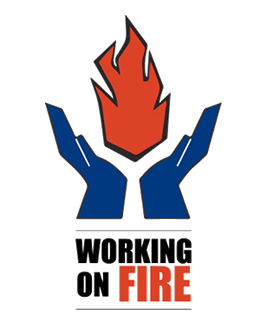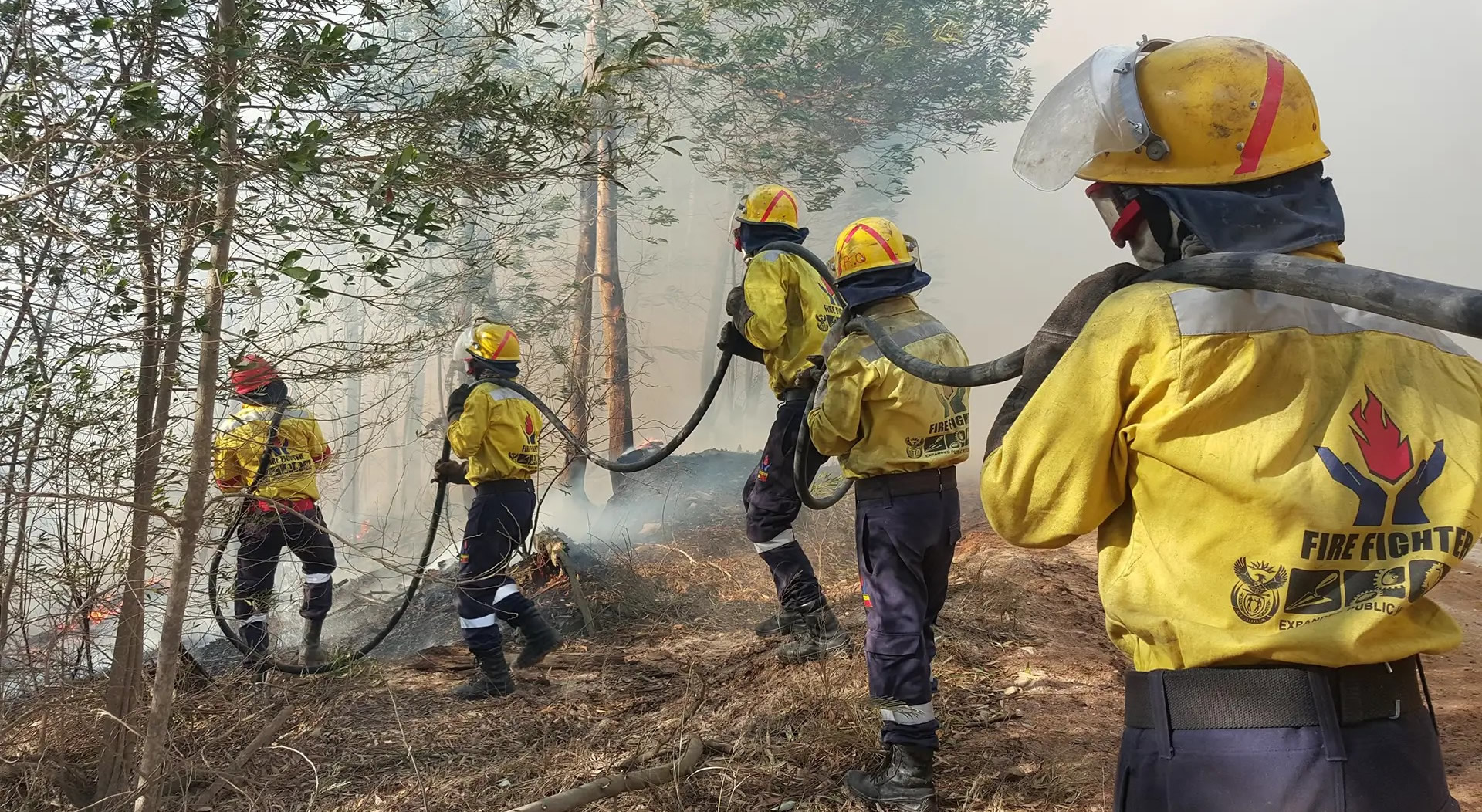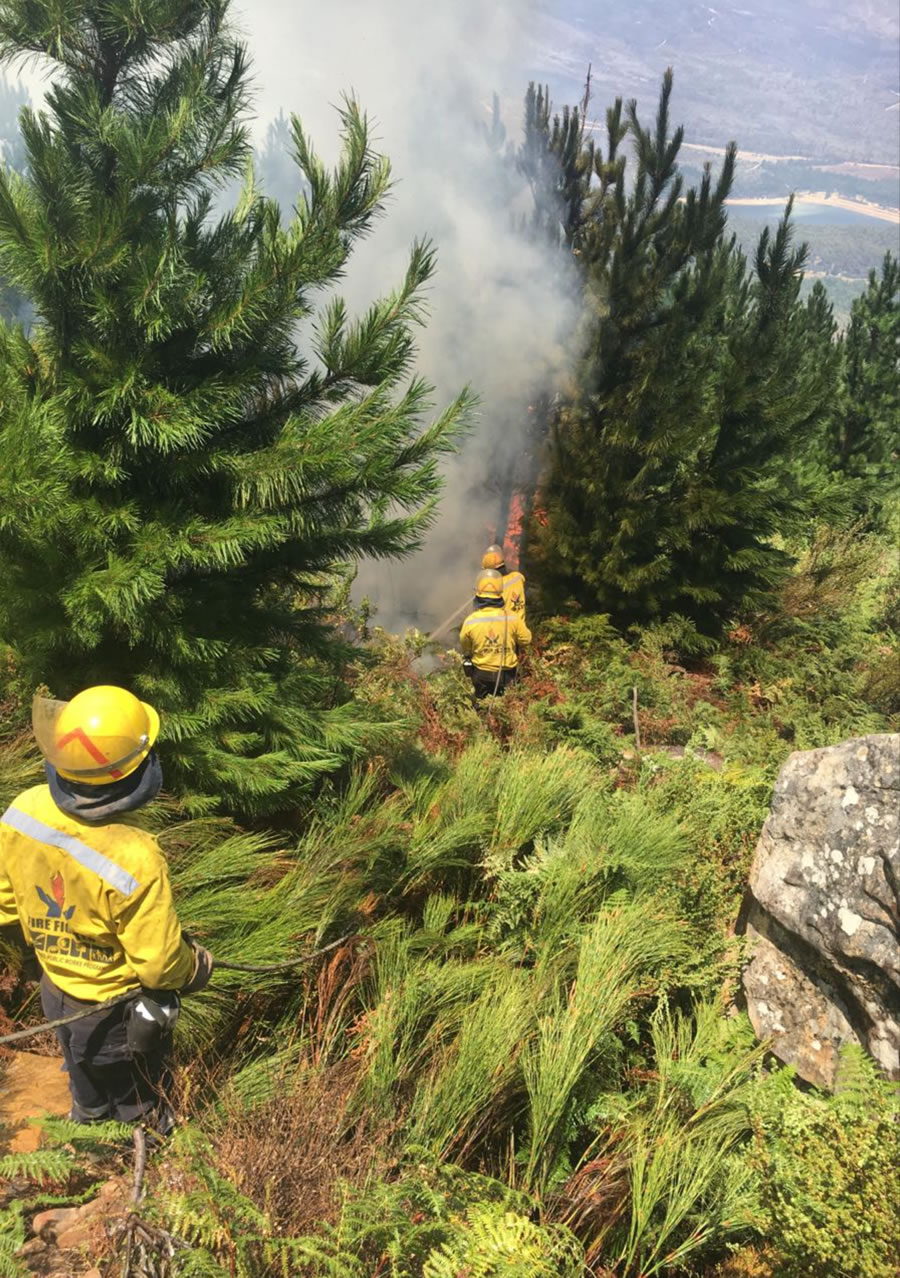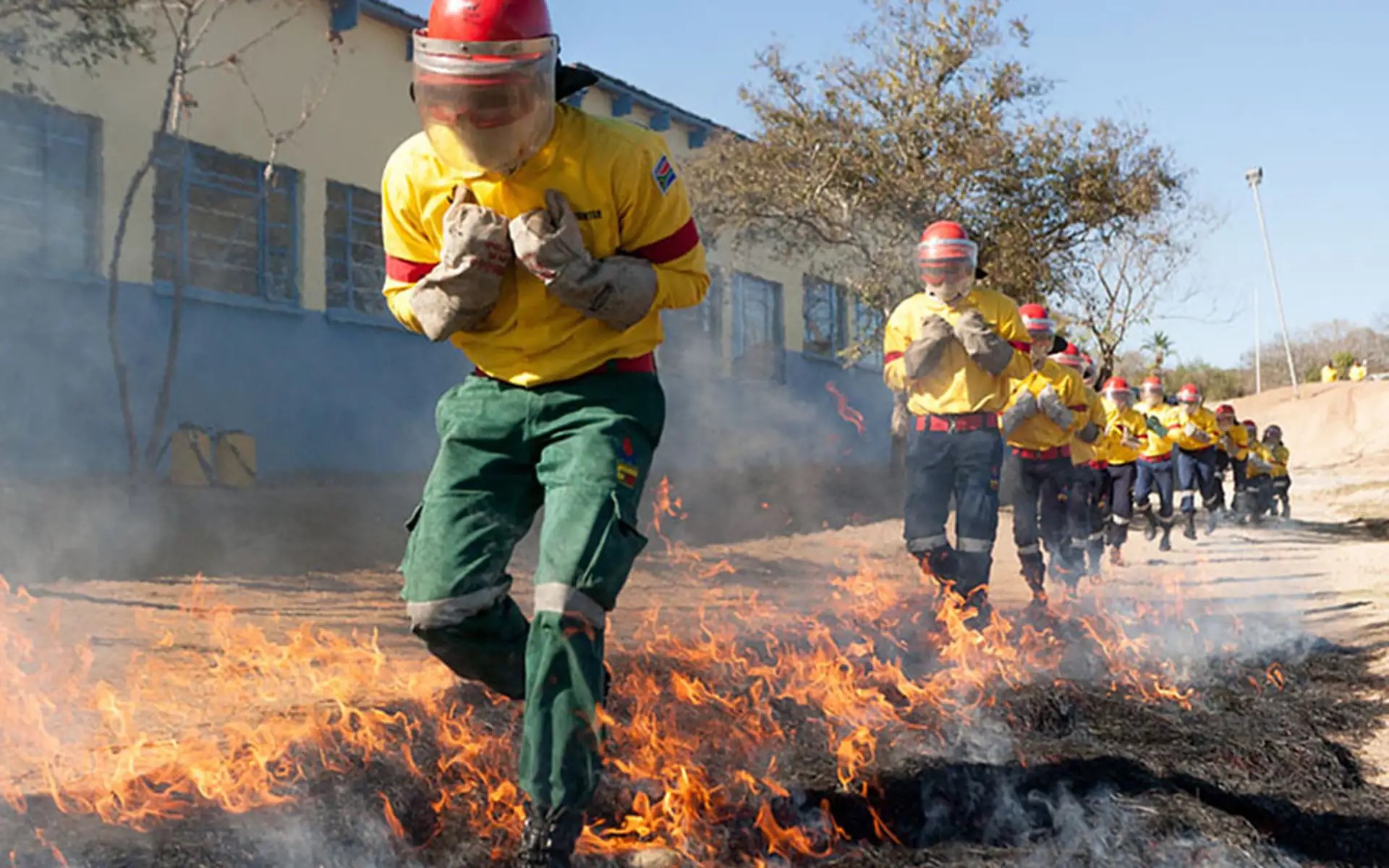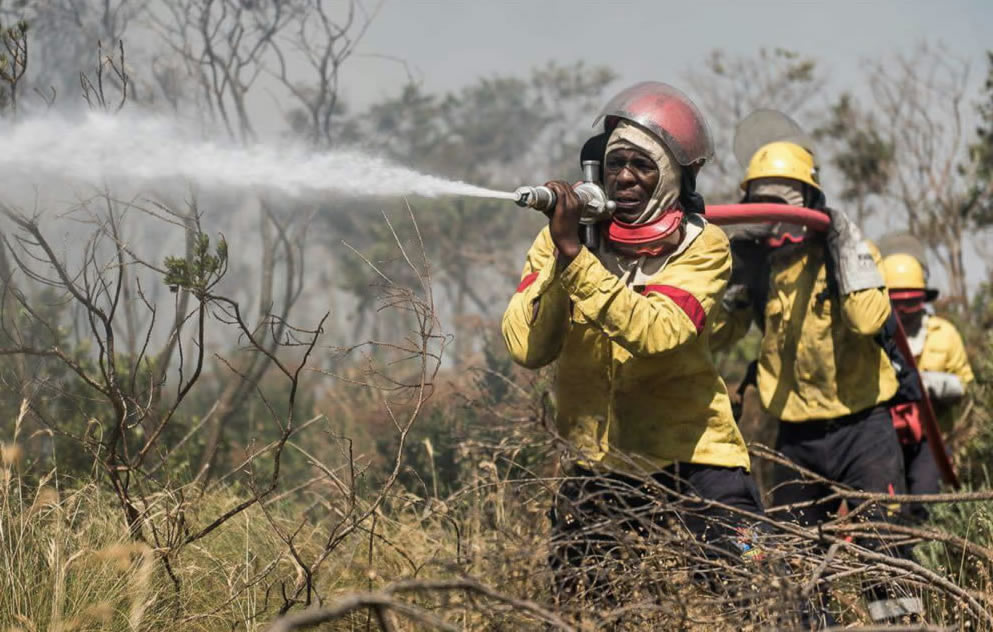WORKING ON FIRE (WoF) DEFINED
PREVENTION AND CONTROL OF WILDLAND FIRES
WoF supports the prevention and control of wildland fires to enhance the sustainability and protection of life, poverty and the environment through the implementation of aspects of Integrated Fire Management (IFM) practices, which includes supporting Fire Protection Associations (FPAs) under the National Veld and Forest Fire Act of 1998.
Fire fighters are recruited from marginalised communities and trained in fire awareness and education, prevention and fire suppression. These young men and women form veld and forest fire fighting ground crews, stationed at bases around the country to help stop wildfires management, which costs the South African economy billions of rands annually.
STRATEGIC OBJECTIVES
- To ensure ecosystem-based natural disaster risk reduction contributes to improved water security, biodiversity, ecosystem-based climate adaptation and mitigation, and sustainable resource use, including aspects of integrated wildland fire management.
- To reduce the cost of clearing the invasive plants.
- To support the prevention and control wildfires.
- To implement aspects of Integrated Fire Management.
- To reduce the risk of high biomass loads after clearing.
The department’s Working on Fire (WoF) Programme currently employs 5 300 men and women (70% of whom are youth, 30% are women and 2% are people with disabilities) who have been trained as veld and forest fire fighters and are stationed in more than 200 bases throughout South Africa.
30% WOMEN
70% YOUTH
2% PEOPLE LIVING WITH DISABILITY
DFFE WoF EMPLOMENT FIGURES
CATEGORIES OF PROJECTS
IMPLEMENTED WITHIN WORKING ON FIRE
EPWP
HIGH ALTITUDE
DROUGHT RELIEF
FORESTRY SUPPORT
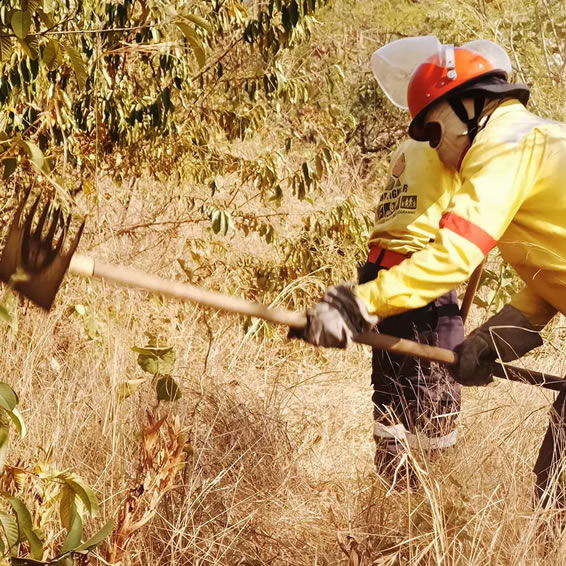
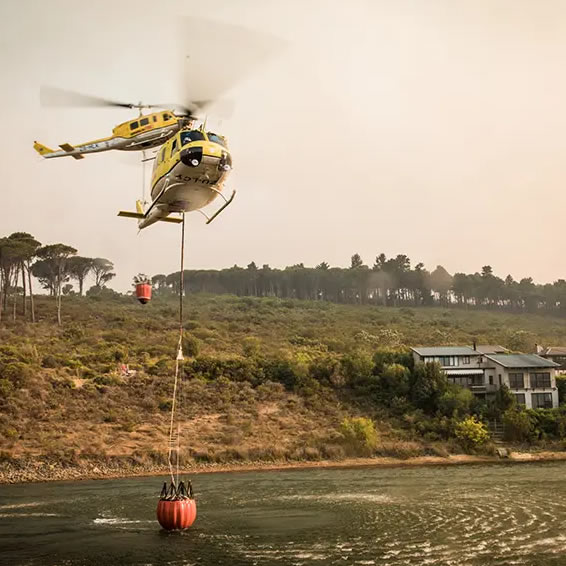

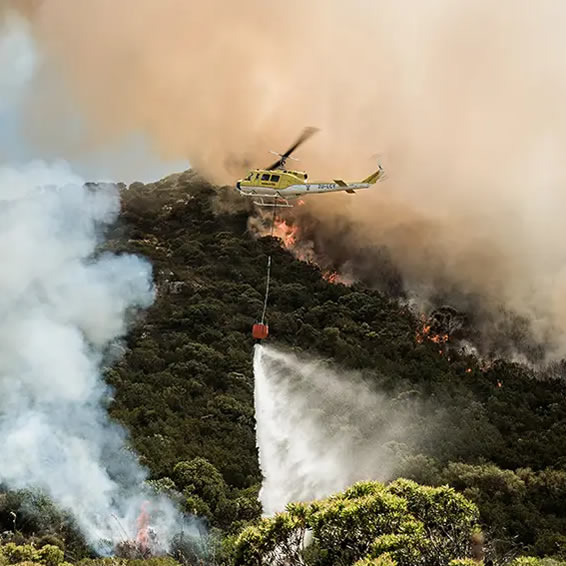
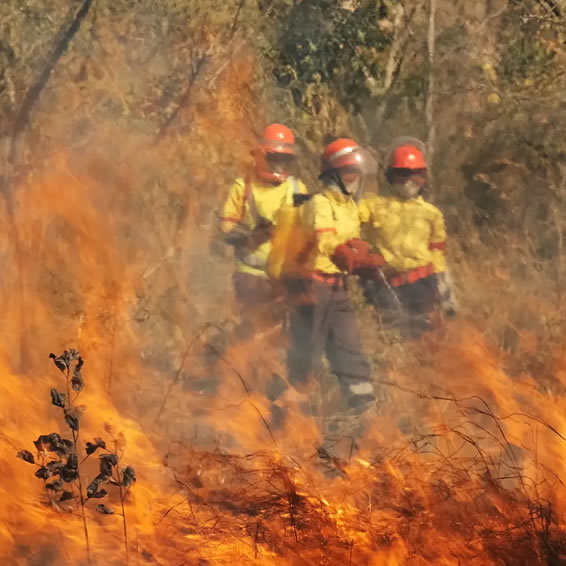
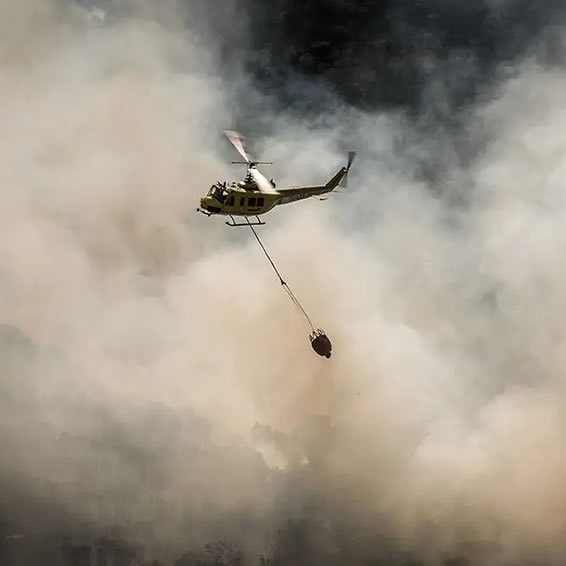
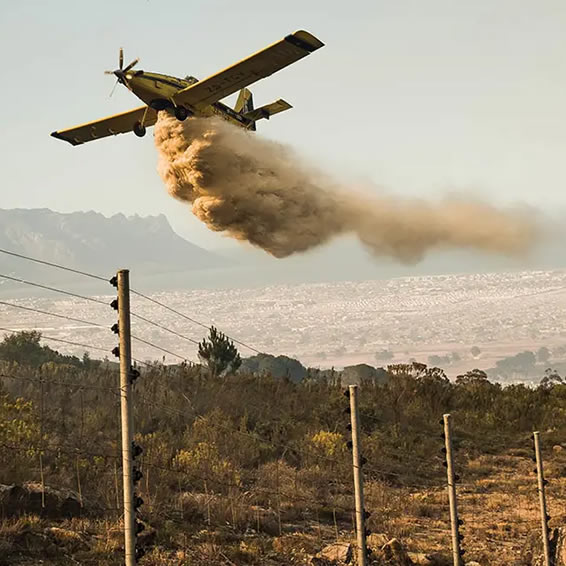

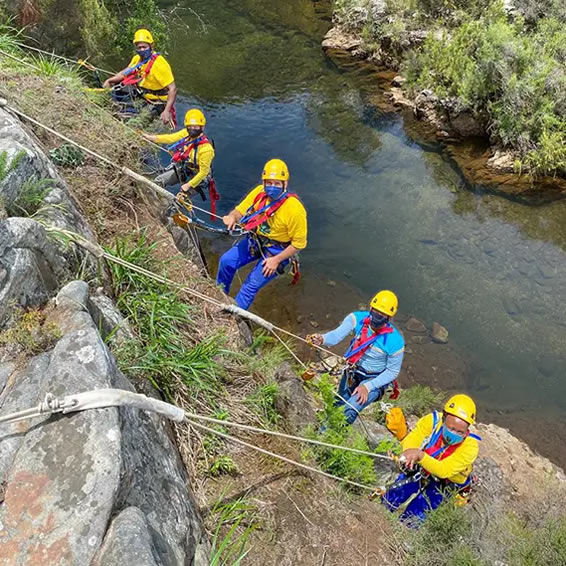
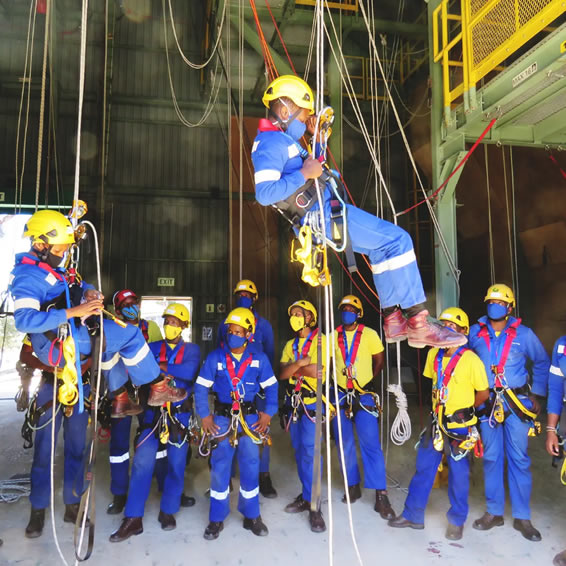
NON - INFRASTRUCTURE PROJECTS |
INTEGRATED FIRE MANAGEMENT
- The department appoints a service provider to assist the department to plan, execute, control, and manage the Working on Fire (WoF) Programme by rendering the following services:
- Providing employment in terms the Expanded Public Works Programme (EPWP).
- Providing training and development to the EPWP participants.
- Environmental Programmes services, which include production, fire awareness communications, support to fire protection associations (FPAs) and umbrella FPAs, and aerial support for DFFE Forestry plantations and community fires.


